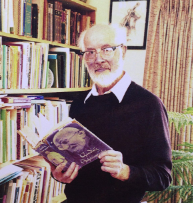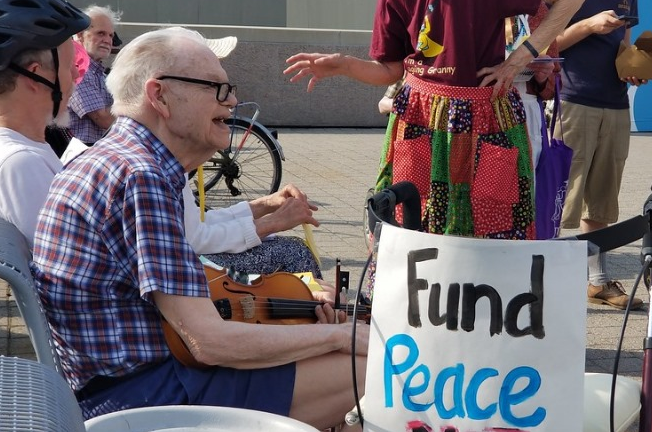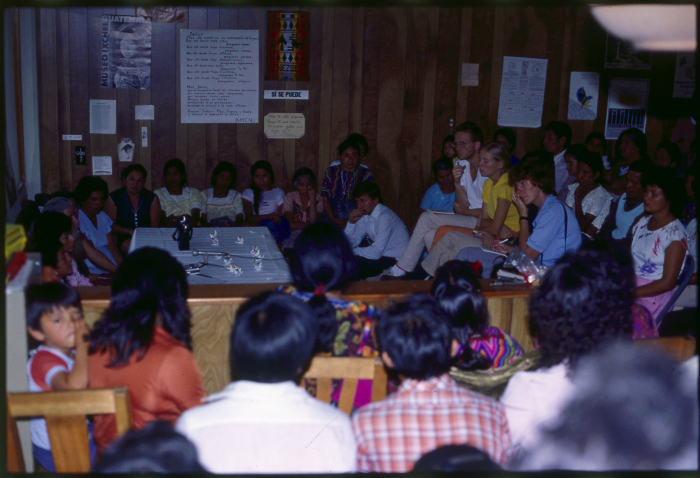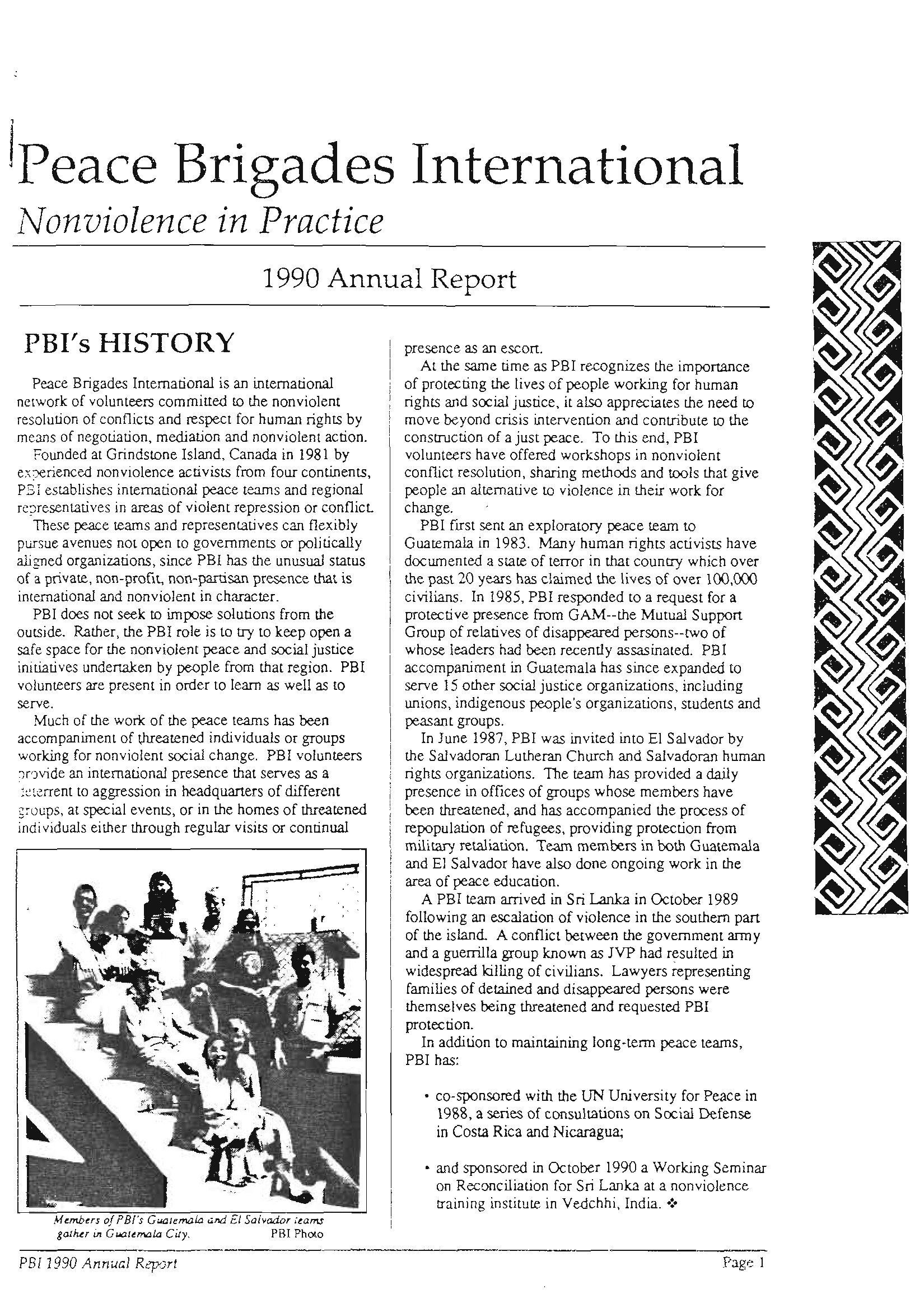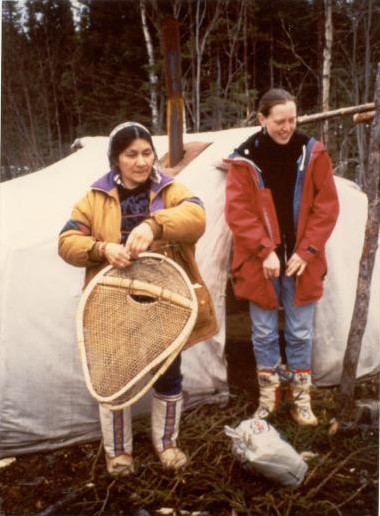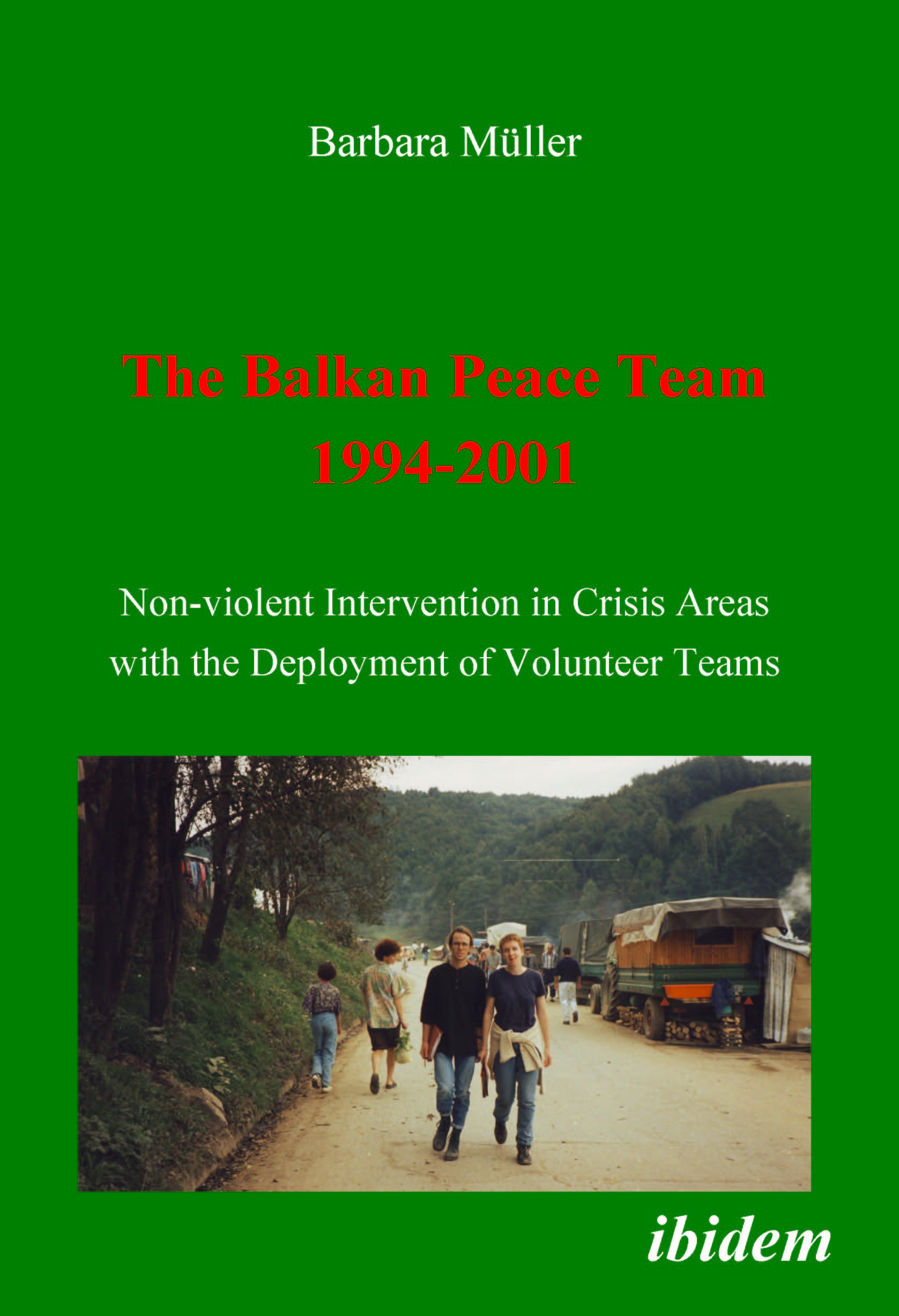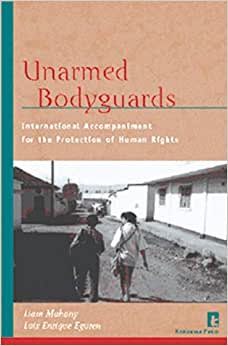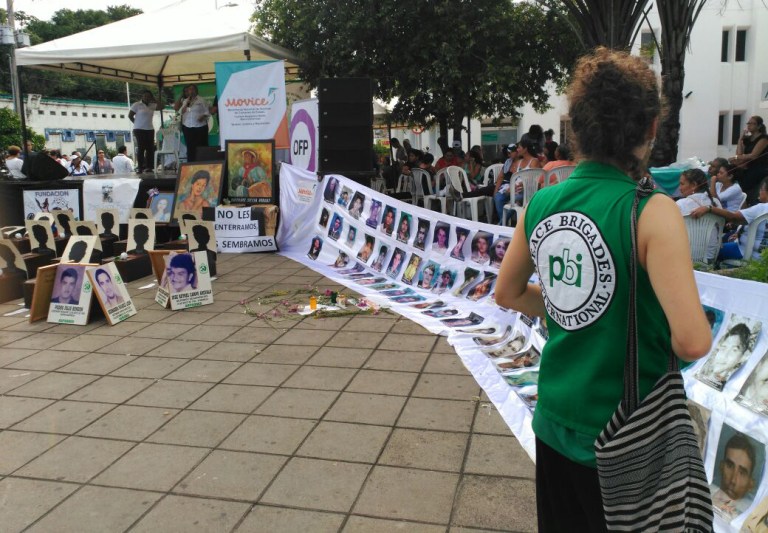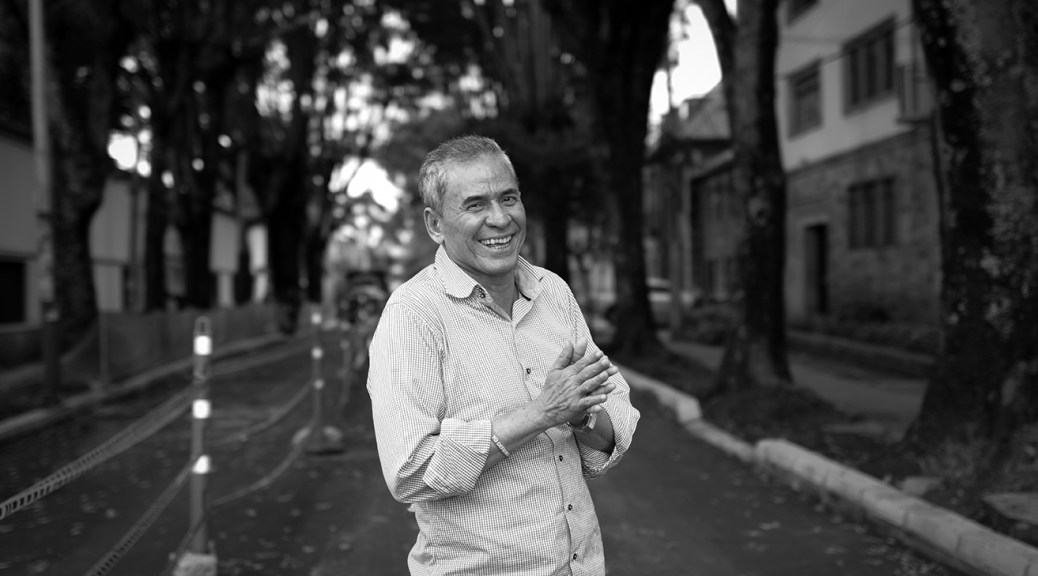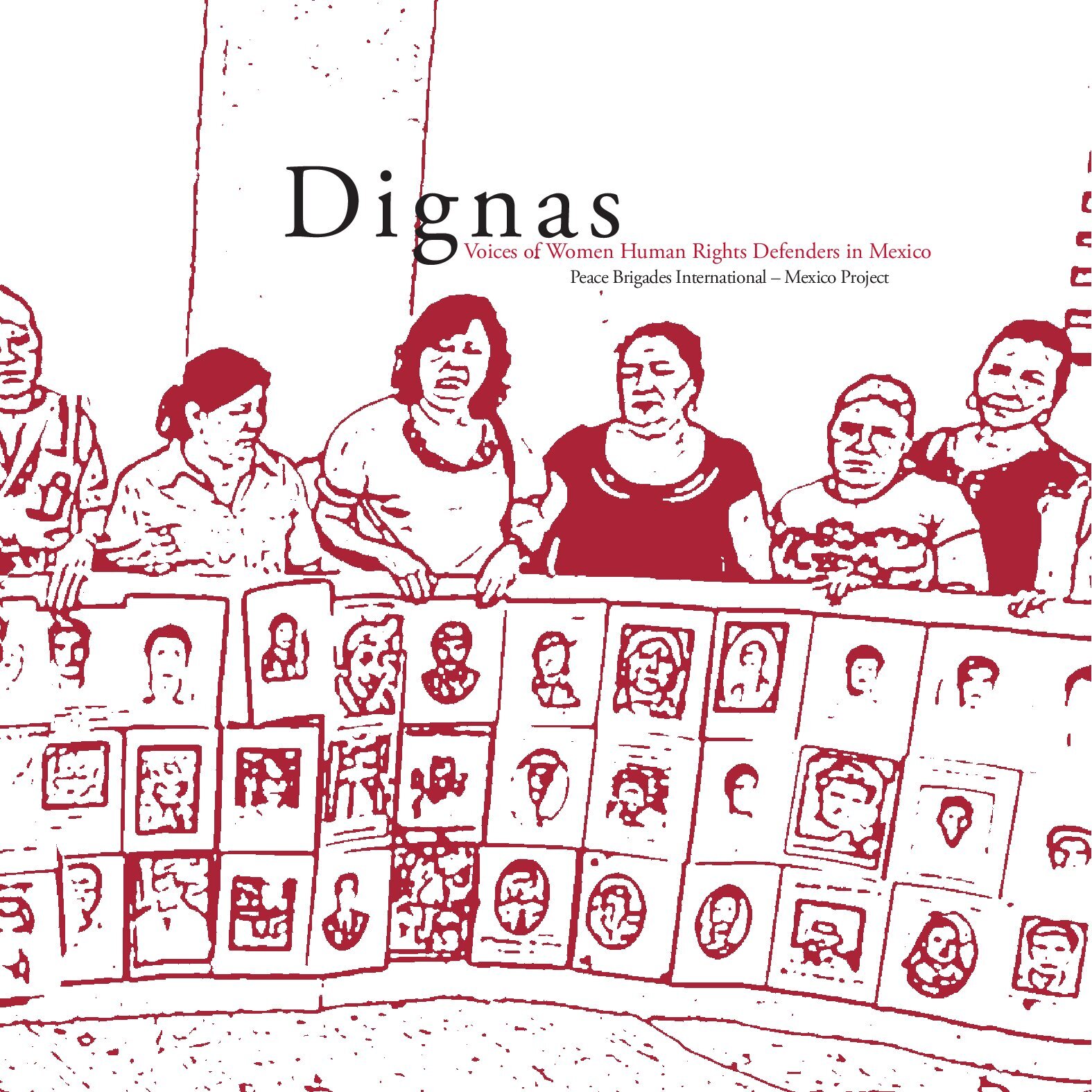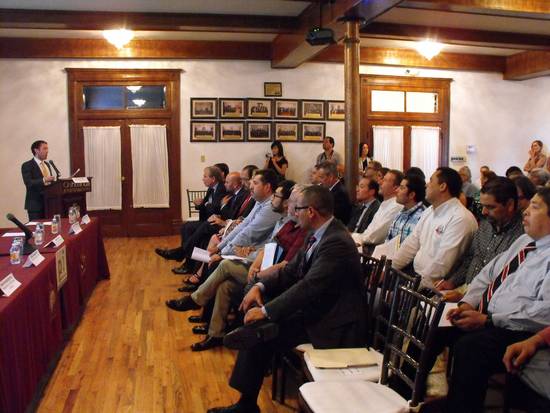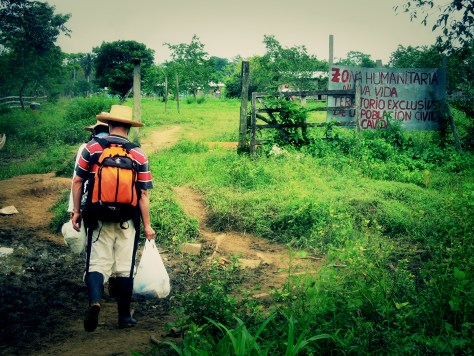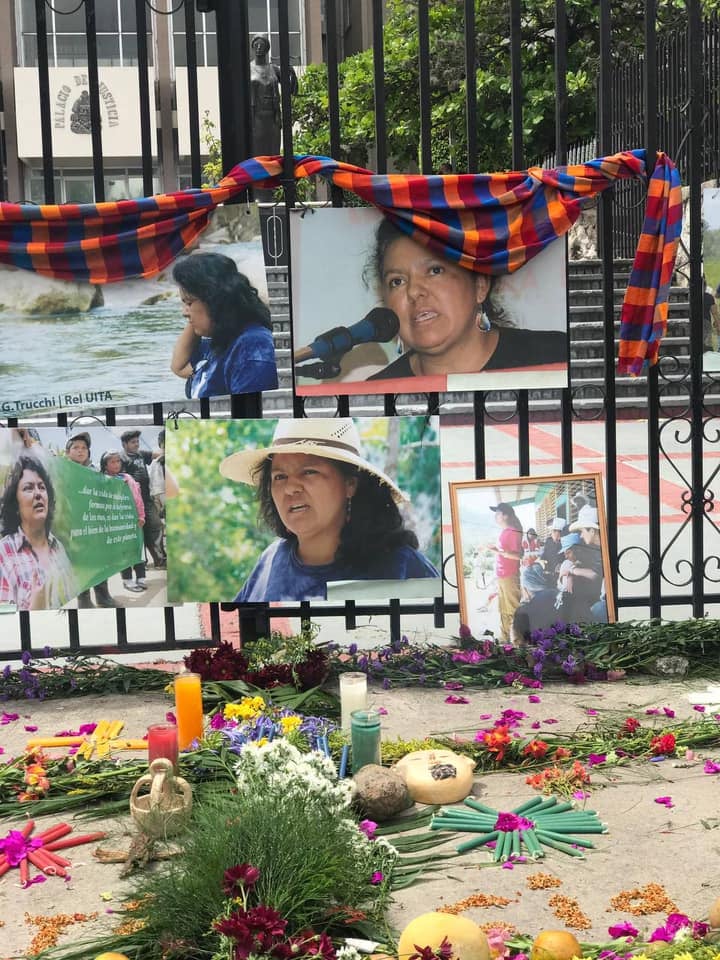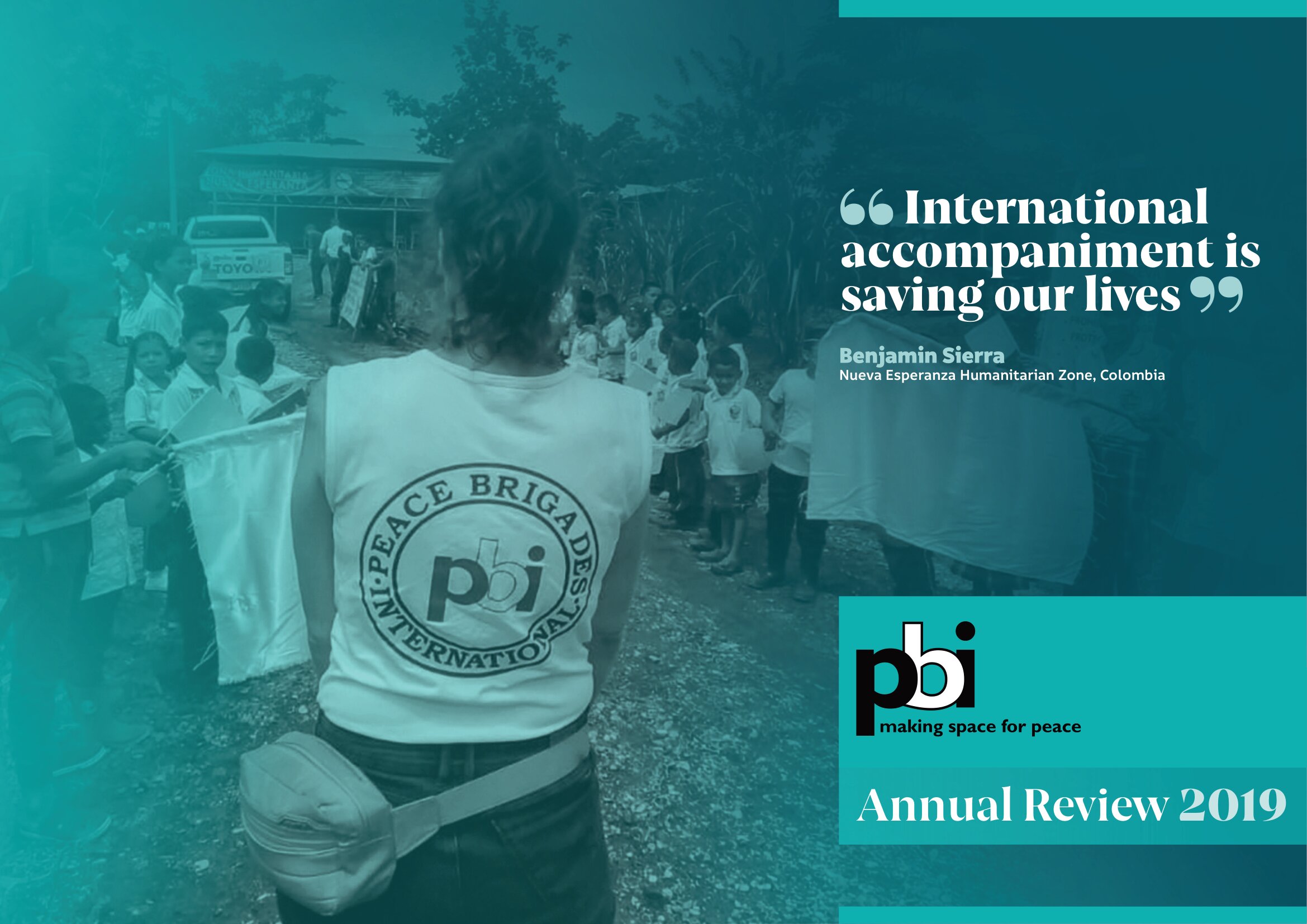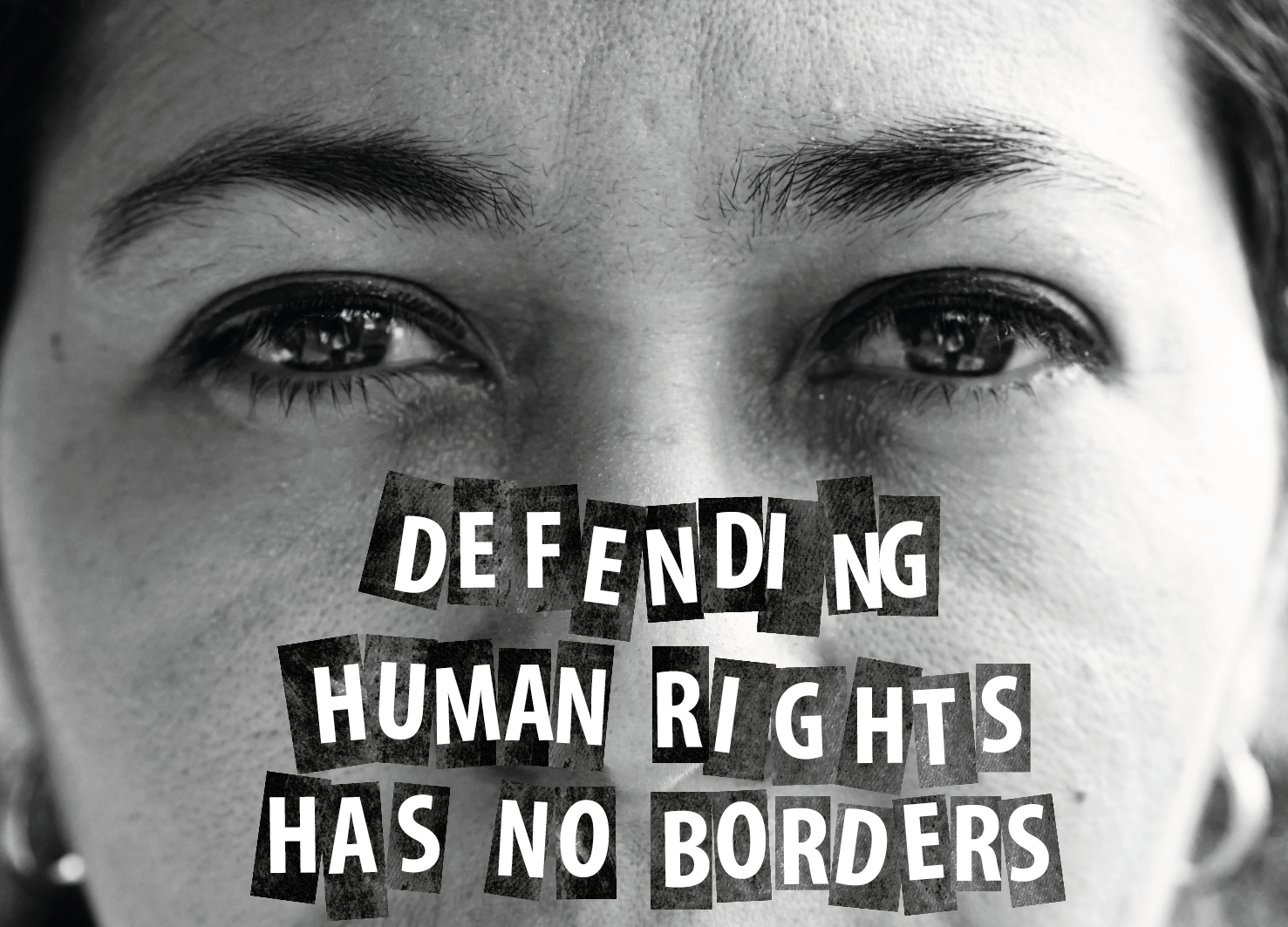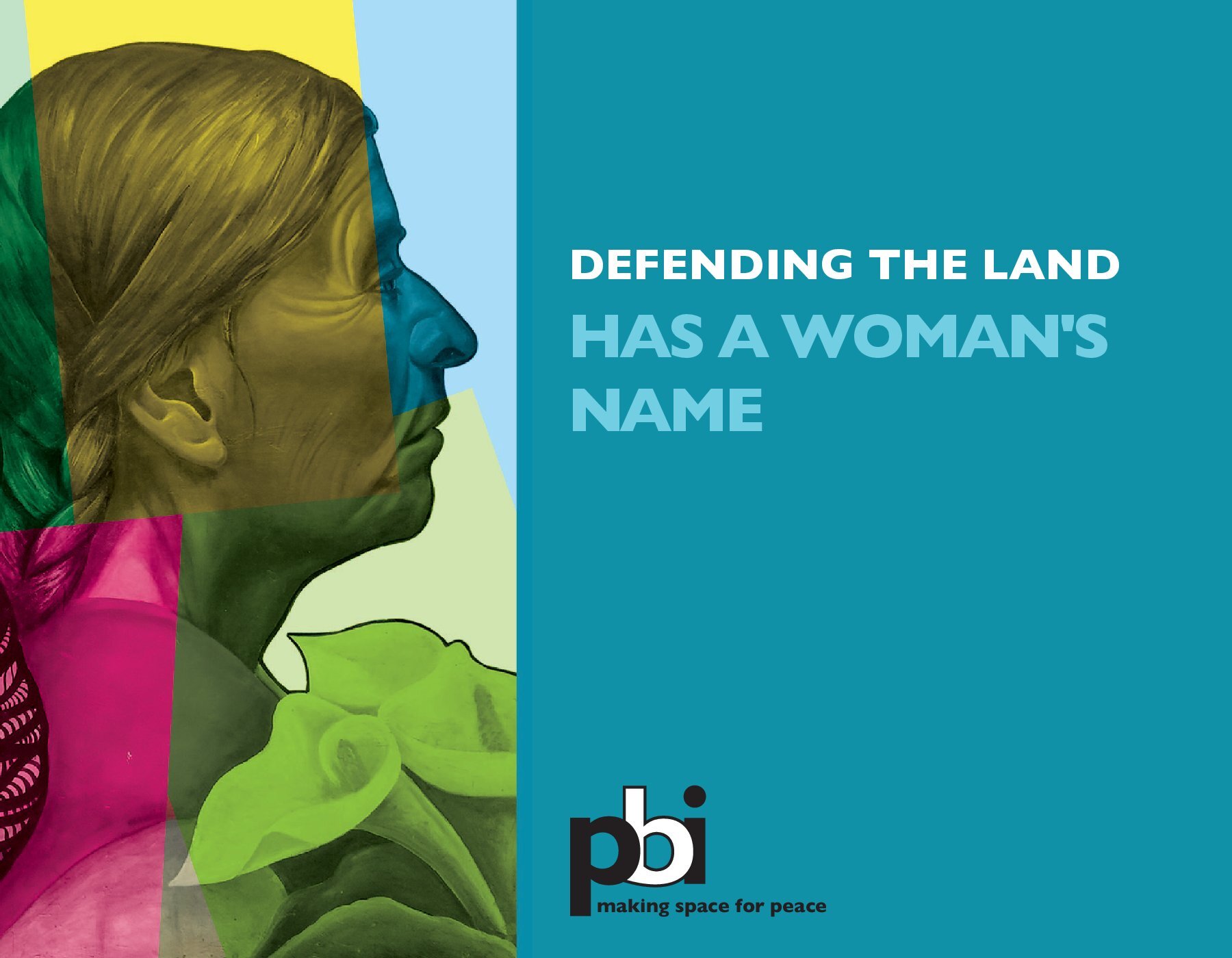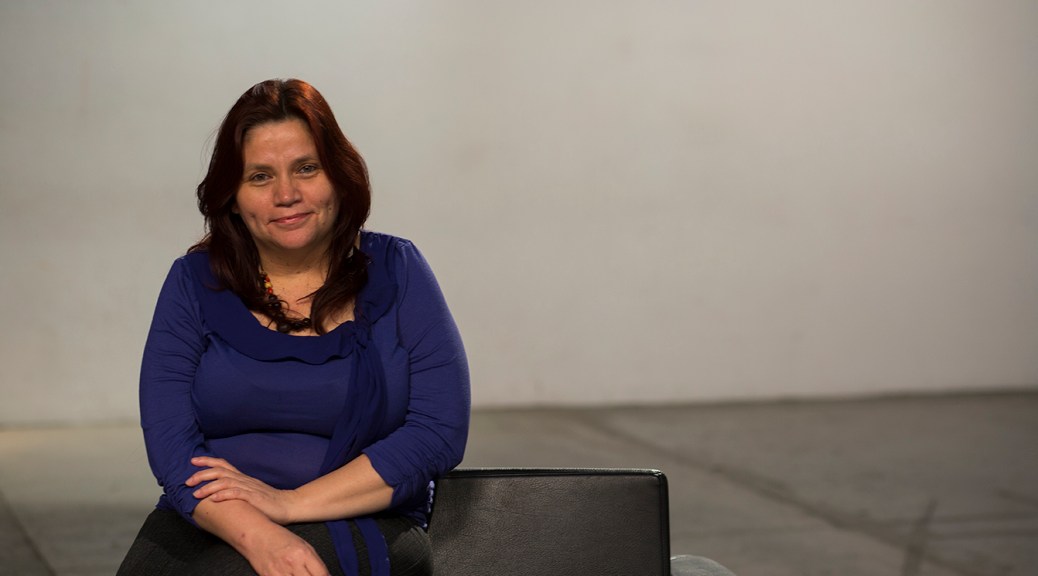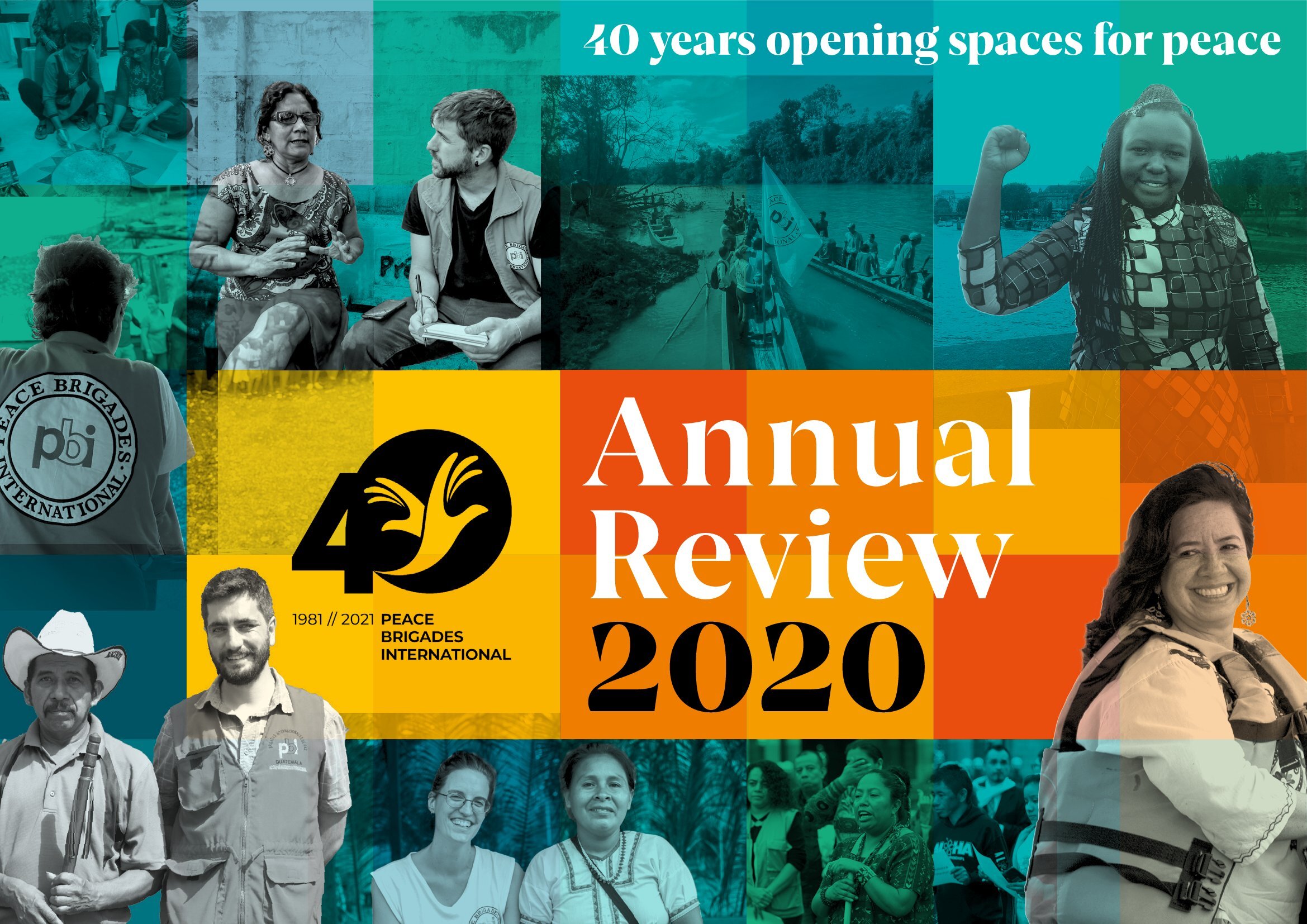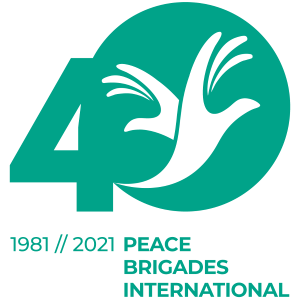 40 years ago, in 1981, a group of international activists came together to create a movement for peace, solidarity and non-violent action. Inspired by non-violent activism across the world, inlcuding the movement spearheaded by Gandhi in India and the Civil Rights movement in the United States, Peace Brigades International aimed to support the peaceful transformation of societies in conflict through dialogue and the progressive fulfillment of human rights.
40 years ago, in 1981, a group of international activists came together to create a movement for peace, solidarity and non-violent action. Inspired by non-violent activism across the world, inlcuding the movement spearheaded by Gandhi in India and the Civil Rights movement in the United States, Peace Brigades International aimed to support the peaceful transformation of societies in conflict through dialogue and the progressive fulfillment of human rights.
While our core mission remains the same, we have adapted our tactics to ensure human rights defenders are protected despite the rapidly changing global context and ever-evolving risks and threats they face. 40 years on, PBI remains convinced of the vital role human rights defenders play in strengthening democracy, upholding the rule of law, and protecting our shared environment. Together, through their protection, we can create a more peaceful and just world.
This timeline illustrates how we have adapted to the ever-changing global context over the past 40 years, supporting peacebuilding efforts in different countries and training hundreds of volunteers in the subtle and important art of non-violence. Today, in 2021, we look back over the past 40 years, acknowledging our roots and appreciating our role in the international peace movement. We remember with huge gratitude all of those who have passed through PBI in different capacities, and recognise the contribution of so many volunteers and staff members to our movement.


